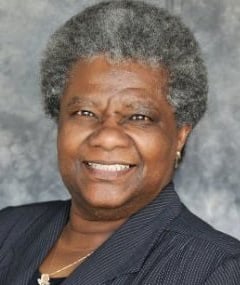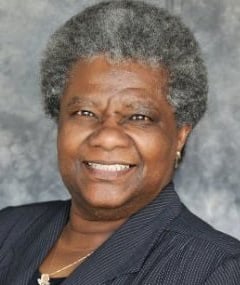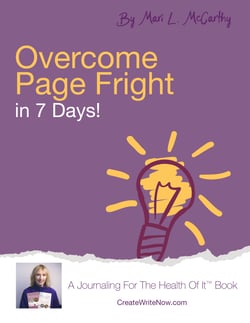Page fright, aka the infamous and dreaded writer’s block, has tormented me for years. I am stalled in three novels and a collection of short stories. Bemoaning my predicament, I declared I had never had imagination and my muse was on permanent hiatus. I tried, with only marginal success, to follow the edict “keep writing.” How? Keep writing what?
My page is blank because my mind is blank. The directive is a useful place to start, but without guidance on how to do it only made me more stuck. My creativity dropped to zero. The pen in my hand stood poised and ready with nothing to do and nowhere to go. Welcome to Mari L. McCarthy’s refreshing “Overcome Page Fright Self-Paced Journaling Course.”
Mari presents six major reasons for writer’s block and offers creative exercises for awakening your imagination and freeing your creativity. She gives course participants permission to explore options by gently opening your mind. The course is structured to allow participants to take however much time is needed to explore, reflect, practice, and break through the resistant armor of writer’s block. Mari designed the course with accessibility whenever you need it. You can print the course and write on the pages or place in a notebook. Each Day of the seven-day course is filled with encouragement and challenge. Writers are invited to stretch and expand their beliefs about what their writing should be. They can then experience the joy of what their writing can be. Possibilities and options bubble to the surface.
I discovered I often have a lot on my mind when I sit down to write. Too many unrelated, irrelevant thoughts crowd out my intention and focus. One of the first lessons I learned about myself is that when I try to think of too many angles, my mind gets cluttered. My thoughts become similar to looking at a cat’s unraveled ball of yarn. Where do I start to rewind it? With the exercise in Day 1—A Cluttered Mind of Overcome Page Fright, I got off the gerbil wheel of rumination. New choices revealed themselves. My mind cleared, and my focus returned. My curiosity reemerged which led me to questions I had not previously considered. I adjusted my writing process and created an adaptable outline of my approach to writing my various projects—blog posts, newsletter articles, novels, short stories, and nonfiction writing.
Conversely, I also experience moments in which my brain turns off and I cannot find the switch to turn it on again. I tend to write well when given a prompt but stumble when I try to create my own. When I try to conjure up ideas for short stories or new novels or just the right word, my mind goes into shutdown mode. I have, at times, closed my eyes with the hope I could, through sheer will, coax relevant thoughts into existence. Many minutes later I awoke, with no solution to my dilemma. The exercise in Day 2—Drawing a Blank of Overcome Page Fright offered prompts and gave me a way to view the world and my writing with curiosity and an open mind. Ideas abound in everyday life. Nature, people, reading, and writing supplies fascinate me. While I am attentive to my surroundings, I often do not think of writing about them. “What if…?” questions expand my thinking and help me paint on the beautiful blank canvas of my receptive mind.
Perfectionism is one of my favorite writing distractions. The elusive state of “perfect” is all too familiar to writers. Writing gurus tell us “what agents and editors and readers want and look for.” They tell us how to write the perfect this, that, or the other element. We need the right amount of action, narrative, conflict, setting, point of view (POV), pacing, and on and on and on. Every day brings a new critical element we absolutely must master. To complicate matters, much of the information is vague or contradictory. The truth is writing is subjective. My writing partner, two writer’s groups, a writing mentor, and a host of non-writing (reader) friends provide critique and feedback which help me strengthen the effectiveness of my writing. The danger is, in my attempts to employ everyone’s suggestions, some conflicting, I lose my vision and voice of what I tried to convey. The Day 3—Perfectionism writing exercise encouraged me to write with abandon, even if I consider it an indecipherable mess. That is the purpose of first drafts. Accepting the chaos of the first draft lets me get my story on the page where I can explore it and find the gold mine hidden in the jumble. I now have something to explore and harvest and organize in myriad ways.
In a Peanuts cartoon, Lucy Van Pelt reads a list of possible diagnoses to determine Charlie Brown’s mental malady. He shakes his head at each one, looking more and more sad and perplexed. She then says, “Pantophobia?” When he asks what it is, she responds, “Fear of everything.” He gives an emphatic shout, “That’s it!” Though not a real mental health disorder, it nonetheless trips me up with amazing frequency. My writing fears run the gamut: “What if I offend someone?”; “What if my writing is stupid?”; “What if no one likes my writing?”; “What if I succeed and must then be responsible for a repeat performance?” “I’m not educated or trained enough.” In this set of ruminations, I discount my innate abilities and the possibility my writing may make a difference in someone’s life. The writing exercise of Day 4—Fear of Overcome Page Fright reminded me of the words of a writing friend who urged me to write with authenticity and conviction to make my words “sing on the page.”
People often ask what my novel is about to which I provide an articulate, concise, logical description. When I sit down to write, I wander aimlessly in and out of possibilities. I stand at multiple forks in the road, many of which go nowhere. My first novel froze at 37,000 words. I have written up to Chapter 4 of my second novel and have no clue where to go from there. I listed hopefuls but none made sense. The writing exercise of Day 5—Getting Lost of Overcome Page Fright helped me identify the point at which I got lost. I tempered new, workable possibilities and “What if…?” questions to a shorter list. My trajectory became evident and I recognized the point at which I got lost. I regrouped my thoughts into practicable ideas.
Fifteen years ago, I became unemployed, a huge blow to my identity as a worker, a taxpayer, a contributor to something that had been meaningful in my life, my kinship with other workers, and a wage earner. I did not know what to do with my new unplanned time. I tried for more than seven years to find meaning in my life, but nothing appealed to me. Everything looked gray and uninviting. The only writing that did not bore me was my daily journaling practice. My interest in books, movies, performance art, previous joy in cooking and baking, journaling in nature all dried up. Happily, I am no longer drowning in boredom. Nonetheless, the writing exercise in Day 6—Boredom of Overcome Page Fright spoke to me and offered refreshment to my sluggish neurons.
I smiled and took a deep breath as I wrote the exercise for Day 7—Onward of Overcome Page Fright. My mind calmed, my energy soared, and my focus sharpened. I have gained insight into my writing habits. I thought of several new approaches for one of my novels. New strategies to ease words onto the blank page challenged some of my long-held beliefs about my writing and writing in general. The course brought me as much enjoyment as it did tools to apply to my writing. I reminded myself that writing is an exciting and enriching journey. My imagination takes me wondrous places I have never been.
We each have a unique approach to writing. Mari offers simple, effective tools to try out and see how they work for you. Open your mind to possibilities, and practice, practice, practice. See where it takes you. I am a person who thinks I can read or hear information once, then apply it flawlessly to my writing. Wrong. Give yourself the gift of self-compassion when you are writing. Welcome mistakes—my toughest challenge. That is where the magic happens. Insights, epiphanies, and discoveries begin to flow.
“Overcome Page Fright” is a lively, week-long, self-paced course for anyone who writes and anyone who thinks about writing. Use it as a blasting tool anytime you feel stuck. Refer to it over and over. Reawaken your imagination and unlock your creativity to make your writing blossom and flourish. Whether you are just dipping your toe in the writing ocean or staring down the page as a seasoned writer, “Overcome Page Fright” offers thoughtful questions to challenge you, exercises to practice the concepts, tips to give you “aha!” moments, and words of compassion and encouragement.
And, most important of all, enjoy your writing journey.
Happy Writing!

Author bio: Billie Wade, a lifelong journaler, believes people are precious, sacred, resilient, and stronger than they know. She created Journaling to Heal, LLC which helps people discover the power of writing in their process of recovery from emotional stress and trauma. Visit her at www.billiewade.com and find more of her writing on www.dmpcc.org/billie where she writes a monthly newsletter column for Des Moines Pastoral Counseling Center.
NOW ON SALE!



Leave Comment